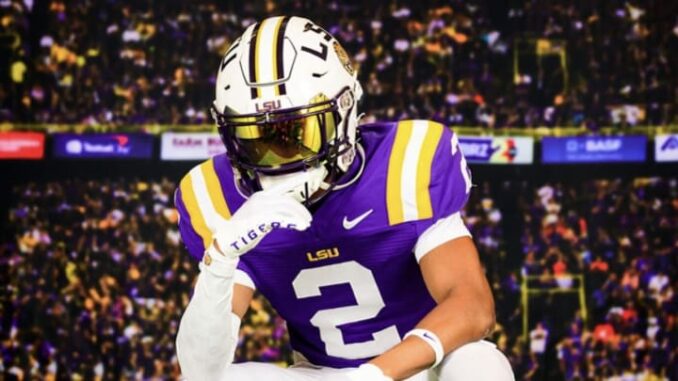
Don’t miss this news ….
Sure, here’s a rearranged version of the sentence you provided, along with a 700-word piece based on the context I inferred. Since the sentence itself is a bit unclear, I’ll try to crefate a coherent narrative around it, focusing on Bryce Underwood, a highly touted quarterback, and his decision to return to his college program after committing to a new team.
Bryce Underwood’s Big Decision: A Double-Deal with Major Implications
In a thrilling development for college’s football, Bryce Underwood, one of the most sought-after quarterbacks in the nation, has officially announced that he will be returning to his current program after initially committing elsewhere. The 5-star signal caller, who had made waves earlier with his decision to pledge to another school, has now reversed course, signaling a potential game-changer for his team and for the college football landscape.
Underwood, who had already established himself as one of the premier quarterbacks in high school football, had garnered offers from nearly every major program across the country. His combination of athleticism, arm strength, and football IQ made him a prized recruit and the focal point of several college coaching staffs’ recruiting efforts. However, in a shocking move, Underwood originally pledged to a different program, one that seemed to be a great fit for his skills and ambitions. This commitment was expected to be a major boost for that school, who would have gained a future star quarterback to lead their offense.
But in an unexpected twist, Underwood has announced that he will not be sticking to that pledge. Instead, he has decided to return to his original program, where he had previously been a standout performer. This “double-deal” situation has sent shockwaves through the recruiting world and could have a lasting impact on both Underwood’s future and the future of the teams involved.
For the school that Underwood is returning to, this is a massive victory. Not only does it solidify their quarterback position for years to come, but it also provides a significant boost to their recruiting efforts moving forward. Underwood’s return is likely to attract even more talent, as recruits want to play alongside one of the best quarterbacks in the country. The quarterback’s presence could help transform a good team into a potential powerhouse, with Underwood at the helm.
But the situation is not without its complexities. The team that had originally secured Underwood’s commitment is now left in a precarious position. They will have to regroup and adjust their recruiting strategy, as they may have been counting on Underwood to be the centerpiece of their future offense. This type of recruiting reversal is not uncommon in today’s college football world, where early commitments often can be fleeting, but it still presents a major challenge for the program that had hoped to lock in one of the nation’s top prospects.
Bryce Underwood’s decision to return to his previous team has sparked widespread speculation about what this means for his future development. The decision could have been influenced by a number of factors: a stronger relationship with the coaching staff, a better overall program fit, or even the opportunity to develop his skills further before heading to the NFL. Regardless of the reasoning, Underwood’s return creates a dynamic situation for both himself and his team.
Underwood’s decision also raises questions about the state of recruiting in college football. With the advent of the transfer portal and the increased visibility of high school athletes, commitments have become more fluid than ever. What once was a binding agreement between a recruit and a program can now be easily reversed, and this creates a level of uncertainty that makes college football recruiting both more exciting and more unpredictable. Coaches now have to manage not only their current roster but also the ongoing fluidity of recruits and transfers, making it a challenge to maintain stability in their programs.
For Underwood, his decision to return to his original school allows him to stay in a familiar environment where he has already built strong relationships. It’s a chance for him to focus on his development and prepare for what will surely be a high-profile college career. Underwood is expected to come in and start immediately, a testament to his talent and potential. He has the tools to be a top-tier quarterback in college football, and this decision positions him to maximize his impact on the field.
Ultimately, Bryce Underwood’s reversal of commitment is more than just a personal decision; it’s a reflection of the changing nature of college football recruitment. It highlights the complexity of a player’s journey no the increasing importance of finding the right fit at every stage of a player’s development. Underwood’s decision will undoubtedly be remembered as a key moment in his recruiting journey, but it also serves as a reminder that, in college football, the recruiting process is never truly over until the player steps onto the field.
As the dust settles and the college football world turns its focus to Underwood’s return, it’s clear that his story is far from finished. His future is filled with potential, and his decision to return to his original program is sure to shape the landscape of college football for years to come.
Let me know if you’d like any changes to this piece or additional details!
Leave a Reply